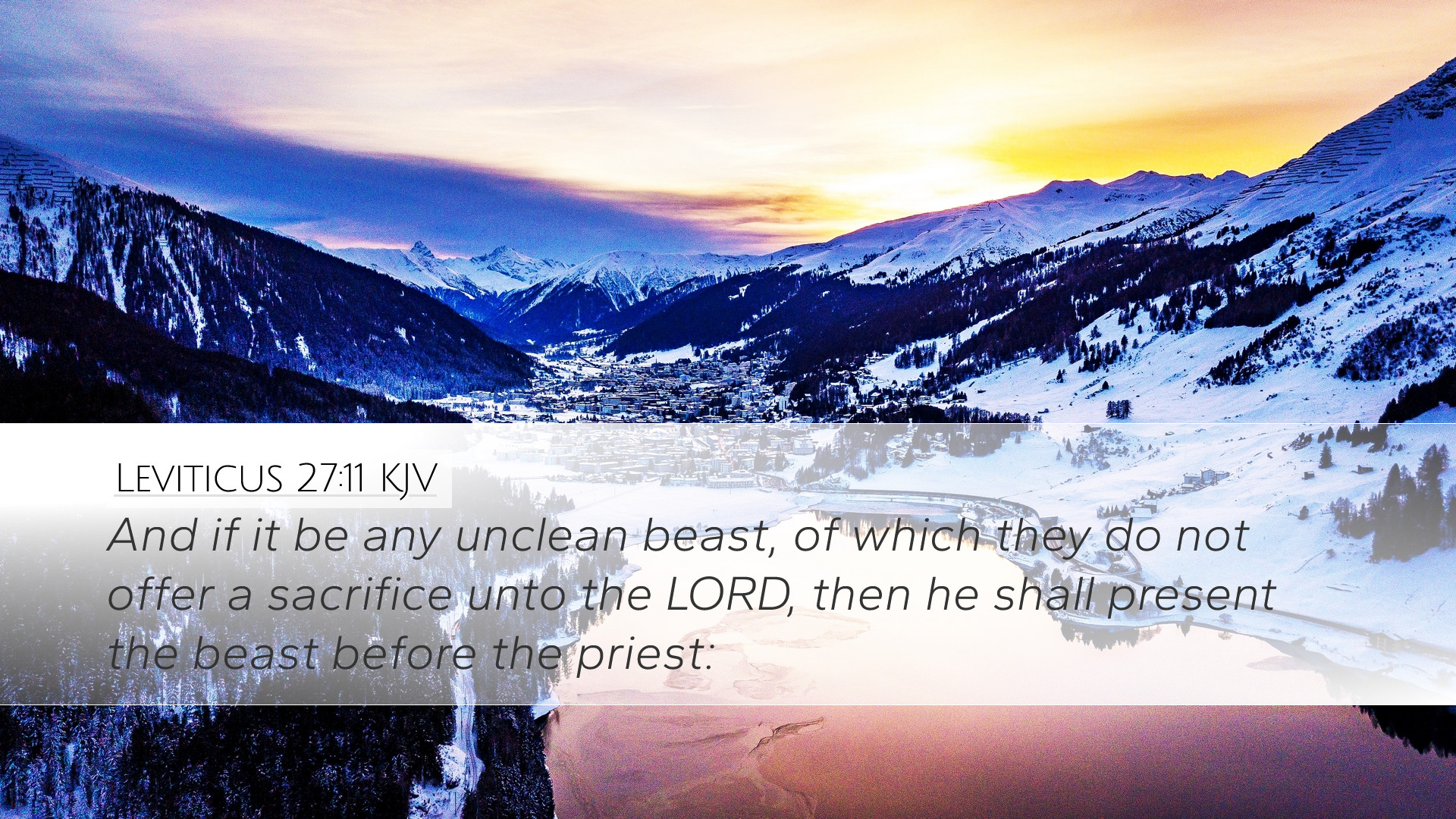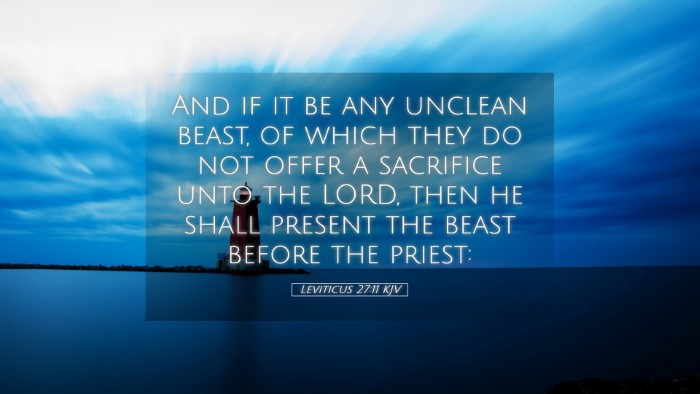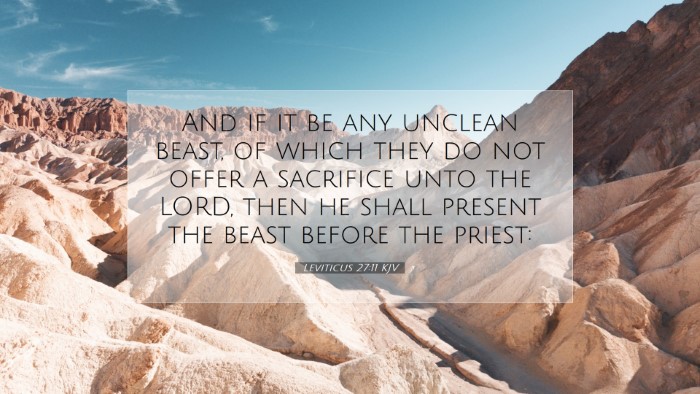Commentary on Leviticus 27:11
Verse: "And if it be any unclean beast, of which they do not offer a sacrifice unto the LORD, then he shall present the beast before the priest."
Introduction
Leviticus 27 concludes the laws concerning vows and dedications to God, outlining the specifics of offerings, including the valuation of animals, and the distinctions between clean and unclean beasts. This verse highlights the role of the priest in adjudicating offerings that are deemed unclean, reflecting the broader themes of holiness, sacrifice, and the seriousness of dedicating items to the Lord.
Insights from Public Domain Commentaries
Matthew Henry
Matthew Henry underscores the practical implications of cleanliness in ritual context. He notes that animals considered unclean were not to be sacrificed but could still be presented to the priest. This provision signifies God's willingness to engage with the unclean and provides a pathway for reconciliation. Henry emphasizes that the act of presenting an unclean beast to a priest reflects a maintaining of order and discipline within the community, ensuring that all that is offered to God is done according to divine standards.
Albert Barnes
Albert Barnes elaborates on the importance of distinguishing between clean and unclean animals in relation to offerings. According to Barnes, this categorization serves a functional purpose in Israel's religious life, ensuring purity in worship practices. He also points out that the valuation of unclean animals before the priest for the purpose of redeeming a vow illustrates the importance of accountability in one’s commitments to God. Barnes posits that understanding this system helps believers reflect on their own lives and the purity with which they approach God.
Adam Clarke
Adam Clarke provides a theological reflection on the implications of presenting unclean beasts before a priest. Clarke indicates that this procedure emphasizes the separation of the holy from the unholy. The priest's role becomes pivotal as he acts as a mediator between God and the people, confirming that even those things deemed unclean can be brought before God under the right conditions. Furthermore, Clarke notes that the unclean beasts symbolize sin and imperfection, and engaging them in the process of repentance is vital for spiritual restoration.
Theological Significance
This verse is rich in theological implications, primarily concerning the nature of holiness and sin. It serves as an illustration of how God desires relationship and interaction with His people even amidst their shortcomings. The presentation of an unclean animal, rather than being dismissed, becomes an opportunity for confession and approach to God through the priestly mediation.
Practical Applications
- Reconciliation: Just as unclean animals could still be presented to the priest, individuals are reminded that their faults and failures do not disqualify them from approaching God.
- Role of the Church: The priest's mediation foreshadows the role of Christ as our ultimate mediator. Believers are encouraged to seek help through pastoral guidance in their worship and commitment processes.
- Importance of Commitment: The seriousness of vows is emphasized; thus, the faithful ought to consider their commitments to God thoughtfully and seriously.
Conclusion
Leviticus 27:11 presents both a challenge and an opportunity. It calls on believers to reflect on their own lives, recognizing that God's holiness does not negate His desire for us to come to Him as we are. It serves as a reminder for congregations to create environments where repentance and healing are possible, understanding that Christ has become our ultimate offering, bridging the gap between the clean and the unclean.


